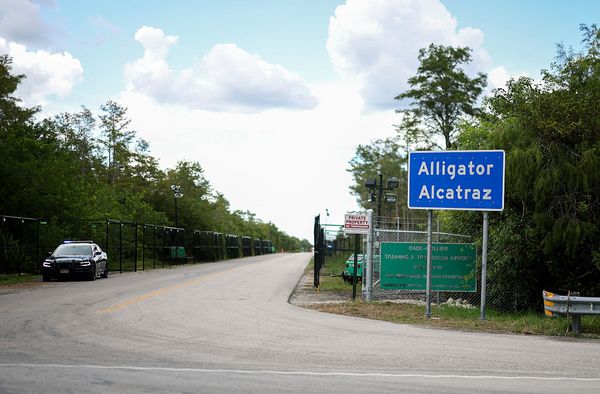
The Scottish Greens have indicated they would have walked away from their governing partnership with the SNP if the first minister, Humza Yousaf, had not challenged the UK government’s veto on Holyrood’s plan to change gender recognition laws in Scotland.
However, the Scottish Conservatives have accused the new SNP leader of “making the same mistakes as Nicola Sturgeon”.
Asked directly on BBC Radio Scotland’s Good Morning Scotland programme whether her colleagues would have walked away from government if the Scottish National party had failed to mount a legal challenge, the Scottish Greens’ equalities spokesperson, Maggie Chapman, said: “It was very, very clear that this was a key principle for us as part of the Bute House agreement, and I’m very pleased that Humza Yousaf has taken the decision to challenge this in court.”
Chapman insisted it was not an option to renegotiate sections of the bill – which simplifies the process by which a transgender person can acquire a gender recognition certificate. Critics have raised particular concerns around a lack of safeguarding and the lowering of the age of application to 16.
Chapman said: “It was made quite clear in the very few conversations we’ve had with the UK government and others since the passage of this legislation that actually no amendments would have satisfied the UK government.”
The Scottish Conservatives’ equalities spokesperson, Rachael Hamilton, said on the same programme there had been “plenty of opportunity” for the Scottish government to answer concerns raised by the UK government and the Equality and Human Rights Commission during the passage of the bill.
“We knew all along that the Scottish government were not interested in listening to concerns about the safety and impact on women and girls. Nicola Sturgeon said all along that women’s concerns were not valid, and now Humza Yousaf is making the same mistakes as Nicola Sturgeon.”
She rebutted the framing by Scottish ministers of the veto as an attack on Scottish democracy, saying the use of section 35 under the 1998 Scotland Act was “part of the devolution settlement”.
The former supreme court judge Lord Sumption said the Scottish government’s position was “very difficult”, after it launched a judicial review of the veto on Wednesday. But he said the use of a section 35 order to bar the bill from going for royal assent was unlikely to set a precedent because the issue of gender reassignment was a “one-off”.
Sumption said the Scottish government’s case was “arguable but weak”, adding he would not go as far as his former supreme court colleague Lord Hope, who has described it as “hopeless and a waste of public money”.
“Section 35 empowers the UK government to stop a Scottish bill becoming law if it modifies the law relating to a matter reserved to Westminster in a way that adversely affects how the law works,” Sumption said.
“The result will be that some UK citizens, if this bill comes into force, will have a different legal gender in different parts of the UK. That poses really quite serious legal and practical problems for employers and for public authorities operating the equalities legislation on a UK-wide basis. For example, they’ll have to discriminate between trans people in Scotland and the rest of the UK on matters like equal pay, gender discrimination, benefits, pensions, all of these things which are subject to UK-wide statutory regimes.”
He said the Scottish government would have to argue that gender recognition was nothing to do with equal opportunities.
“What they’ll say is equal opportunities is about discrimination. Whereas gender recognition is about defining a person’s legal status. And they’ll point out that the Scottish bill actually has a clause saying that nothing in it is to be treated as modifying the UK-wide Equality Act of 2010. Now, whatever the bill might say about that, its effects clearly do introduce serious problems,” he said.







